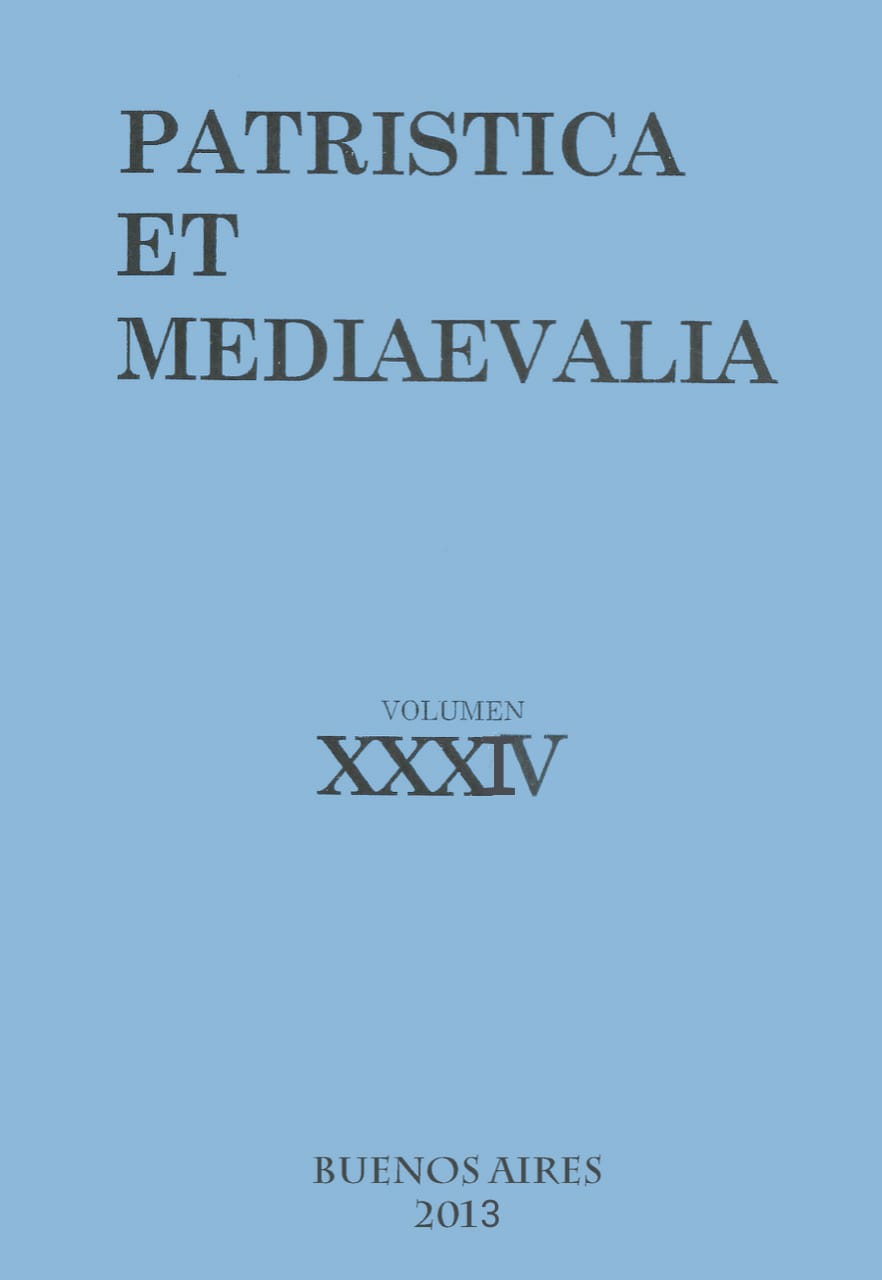How to Make Things with Ideas. The Active Character of Knowledge in the Noetics of Avicenna and Thomas Aquinas
Abstract
The aim of this paper is to examine a fairly common assumption: the arrival of a Creator God in the intellectual horizon of the Middle Ages would have promoted a rather passive image of both knowledge and the knower, and it would have produced an ontological consolidation of res sensibilis. To achieve this purpose we will analyse some significant issues of Avicenna’s and Aquina’s noetics. We will try to test the following hypothesis: it’s plausible that the Creator God –as the Divine Intellect– has offered to medieval noetic a model for the human intellect, which would have led to a more active view on this latter intellect.Downloads
References
Black, D. (2005). Physchology: should and intellect. En Adamson, P. & Taylor, R. (ed). The Cambridge Companion to Arabic Philosophy. Cambridge: Cambridge University Press.
Black, D. (2010). Intentionality in Medieval Arabic Philosophy. Quaestio, 10, 65-81.
Black, D. Arabic Theories of Intentionality and their Impact in the Latin West. Online Articles University of Toronto.
Capuzzo, L. (2011). La dottrina del verbum mentis di Tommaso d’Aquino e le polemiche francescane del XIII secolo. Tessi di dottorato. Università di Padova.
Crowe, F. SJ & Doran, R. SJ (ed) (1997). Verbum: Word and idea in Aquinas, vol. 2. Collected Works of Bernard Lonergan. Toronto: University of Toronto Press.
Davidson, H. (1992). Alfarabi, Avicenna, and Averroes, on Intellect. Their cosmologies, theories of the active intellect, and theories of human intellect. Oxford: Oxford University Press.
De Libera, A. (1996). La Querelle des universaux. De Platon à la fin du Moyen Âge. Paris: Seuil.
Filippi, S. (2012). Razones teológico-metafísicas del realismo aristotélico medieval. Studium. Filosofía y Teología, 29, 101-116.
Floucat, Y. (1997). L’intellection et son verbe selon saint Thomas d’Aquin. Revue Thomiste, 97, 443-484.
García López, J. (2001). Metafísica atomista: ontología, gnoseología y teología natural. Pamplona: EUNSA.
Gilson, E. (1957). Le thomisme. Introduction à la philosophe de Saint Thomas d’Aquin. Paris: Vrin.
Guerrero, R. (1984). En el centenario de E. Gilson: Las fuentes árabes del agustiniano avicenizante y el de Alejandro de Afrodisia. Anales del Seminario de Historia de la Filosofía, 4, 83-106.
Guerrero, R. (2004). Filosofías árabe y judía. Madrid: Trotta.
Gutas, D. (2012). Avicenna: The Metaphysics of the Rational Soul. The Muslim World, 102, 417-425.
Gilson, E. (1981). El espíritu de la Filosofía Medieval. Madrid: Rialp.
Lagerlund, H. Mental Representation in Medieval Philosophy. En Stanford Encyclopedia of Philosophy. En línea.
Marmura, M. (2005). Quiddity and Universality in Avicenna. En Marmura, M. Probing in Islamic Philosophy. Studies in the Philosophies of Ibn Sina, al-Ghazali and Other Major Muslim Thinkers. Binghamton/New York: Global Academic Publishing, 61-70.
Michon, C. (2009). Les représentations rendent-elles indirecta la connaissance des choses?. En Biard, J. (ed). Le langage mental du Moyen Âge à l’Âge Classique. Louvain: Peeters Publishers, 45-60.
O’Callaghan, J. (2000). Verbum Mentis. Philosophical or Theological Doctrine in Aquinas?. Proceedings of the American Catholic Philosophical Association, 74, 103-119.
O’Callaghan, J. (2003). More Words on the Verbum. A Response to James Doig. American Catholic Philosophical Quarterly, 77(2). 257-268.
Palacio, C. (2001). Aquinas on intelectual representation. En Perler, D. (ed). Ancient and Medieval Theories of Intentionality. Leiden: Brill, 185-201.
Pasnau, R. (1997). Theories of cognition in the later Middle Ages. Cambridge: Cambridge University Press.
Pasnau, R. (2003). Mind and Knowledge (The Cambridge translations of Medieval Philosophical Text, vol. 3). Cambridge: Cambridge University Press.
Perler, D. (2000). Essentialism and Direct Realism: Some Late Medieval Perspectives. Topoi, 19, 111-122.
Sebti, M. (2000). Avicenne. L’ame humaine. Paris: PUF.
Sebti, M. (2005). Le statut ontologique de l’image dans la doctrine avicennienne de la perception. Arabic Sciences and Philosophy, 15, 109-140.
Spruit, L. (1995). Species Intelligibilis: From Perception to Knowledge : Ii. Renaissance Controversies, Later Scholasticism, and the Elimination of the Intelligible S (Brill's Studies in Intellectual History). Leiden: Brill.
Verbeke, G. (1968). Le ‘De Anima’ d’Avicenne, une conception spiritualiste de l’homme. En Avicenna Latinus / Liber de Anima seu Sextus de Naturalibus IV-V, 46*-59*.
1. The authors who publish in this magazine accept the following conditions:
-
They retain the copyright and grant to the magazine the right of the first publication, with the work registered under the Attribution-ShareAlike 4.0 International License that allows third parties to use what is published as long as they mention the authorship of the work and the first publication in this magazine.
-
They can make other independent and additional contractual agreements for the non-exclusive distribution of the version of the article published in this magazine (eg. include it in an institutional repository or publish it in a book) provided that they clearly indicate that the work was first published in this journal.
-
They are allowed and recommended to publish their work on the Internet (for example on institutional or personal pages).
2. AutoArchive Conditions. Authors are allowed and encouraged to distribute post-print electronic versions of their manuscripts because it promotes their circulation, a possible increase of quotation and a major reach among the Academic community. Color RoMEO: blue.













